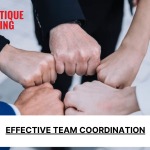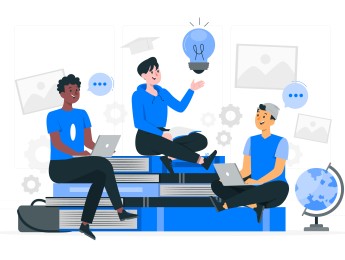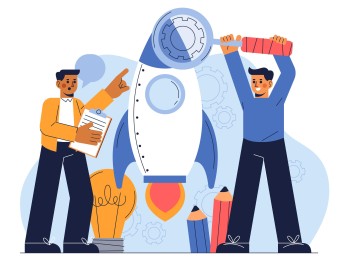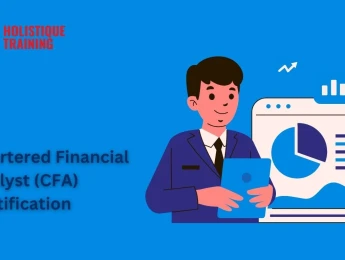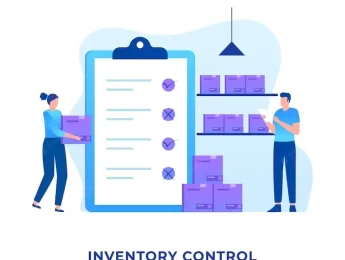Creating teamwork is essential for productivity. A strong leader is a key to this team and, as such, must understand and be able to demonstrate the core competencies needed to create team cohesion. They must also understand dynamics and personality types in order to create an open arena for a shared vision. A strong team needs clear guidance and commitment, as well as someone able to deal with conflict resolution. There is actually a level of informed science behind the dynamics and processes of a group working together.
In this course, delegates will learn the skills needed to develop a healthy team working culture and learn how to inspire and influence people. This is an essential course for all those with leadership responsibilities who want to ensure they can create happy, productive teams where individuals can develop skills and embrace their personal strengths. The course also covers mentoring, feedback, and motivating with rewards to ensure that the teams effectively achieve business purposes.
Upon completion of this course, participants will be able to:
- Demonstrate the core competencies of behaviour to lead a team effectively
- Understand the impact of team dynamics
- Engage a team in collaboration to achieve high performance actively
- Describe the role of the team leader as it relates to innovation, engagement, trust, collaboration and empowerment.
- Lead the growth and develop innovation using the natural talents of a team.
- Empower and build trust to manage the performance
- Comprehend preferred behaviours and team dominance
- Be familiar with the emotional makeup of a team and any blind spots
- Be calm and confident with conflict resolution among diverse people
- Be able to model communication skills that develop a centred team
- Motivate and tap into energies to power the team
- Be confident in developing people using mentoring and coaching
- Delegate effectively
This course is for:
- Senior Managers
- Line Managers
- Team Leaders
- HR and LD professionals
- All leaders and professionals seeking in-depth knowledge of group processes and dynamics
- Anyone interested in developing leadership and management skills
- Those wanting to learn about the psychology of effect work cultures
- Those wishing to learn management strategies
- Anyone looking to add to their skills
Teaching takes place in a variety of settings, including face-to-face classroom teaching. It will ensure that participants can expand their knowledge of the subject and increase their skills. The course is delivered via various methods by a specialist tutor. This will include PowerPoint presentations, reviewing articles and other relevant materials, group or individual exercises and discussions. There may be some independent work set, and the course will require submitting articles to demonstrate understanding and an end-of-course test. Note-taking is encouraged, and you are welcome to use electronic devices to do this.
The course manual will form part of the learning but will give you references for the future. You are encouraged to ask questions and, if needed, spend time one-on-one with your tutor to review any issues. You will network with peers in similar roles during your time in the classroom.
Day 5 of each course is reserved for a Q&A session, which may occur off-site. For 10-day courses, this also applies to day 10
Section 1: How Individuals Fit into a Team
- Working with interests and preferred behaviours
- What motivates people from a personality-driven point of view
- Using a team profile assessment and dealing with team conflicts
- Understanding personal blindspots when it comes to teamwork
- Defining team roles
- Leading the team: taking responsibility and internal focus of control
- A definition of team from a sociological point of view
- Working with a team structure that is not tradition
- Using a team performance curve
- How to assign the optimum team roles
Section 2: Team Building for Stronger Connections
- The role of the team leader
- Self-narratives for learning how to trust others
- Empathetic conversations to reach out to team members
- Diverse personality types and creating a win-win relationship
- Social connection - linked to oxytocin
- The ACL model of team factor
- Communicating in a systemic way
- Defining a problem is key to solving it
- Problem-solving - team techniques
- Creativity and innovation in a team
- How to make decisions that reach a consensus
Section 3: Engineering a Functional Team and Collaboration
- The stages of a team - formations through to performance
- Group dynamics can impact team effectiveness
- How to delegate effectively and create development in the team
- How to maximise productivity and motivate team happiness
- What is impression management and understanding the behaviours
- Uniting a group as one - facilitation skills
- How to empower team members to succeed
- Planning future developments
- Using feedback and mentoring to improve
Section 4: Improving Team Alignment and Effectiveness
- Driving achievement in the team - bring your A-game
- Motivating people to want to follow your lead
- How to respectfully communicate your rights
- Effective communication - the advanced patterns of language
- Active listening and the benefit to interpersonal communication
- The team vision: How to create and communicate it
- Advocating and influencing
- How to cope with changes in the team
Section 5: Empowerment and People Development
- Coaching skills to empower and develop
- Coaching models: the most effective
- How to achieve by using questioning skills effectively
- The difference between problem focus and solution focus
- Action planning and feedforward
- The performance management of a team
- How to increase the performance by setting objectives
- Motivation by reward
- How to actively manage conflict resolution
- Achieving team agreement with negotiation strategies
Upon successful completion of this training course, delegates will be awarded a Holistique Training Certificate of Completion. For those who attend and complete the online training course, a Holistique Training e-Certificate will be provided.
Holistique Training Certificates are accredited by the British Assessment Council (BAC) and The CPD Certification Service (CPD), and are certified under ISO 9001, ISO 21001, and ISO 29993 standards.
CPD credits for this course are granted by our Certificates and will be reflected on the Holistique Training Certificate of Completion. In accordance with the standards of The CPD Certification Service, one CPD credit is awarded per hour of course attendance. A maximum of 50 CPD credits can be claimed for any single course we currently offer.
- Course Code MG2-113
- Course Format Classroom, Online,
- Duration 5 days


